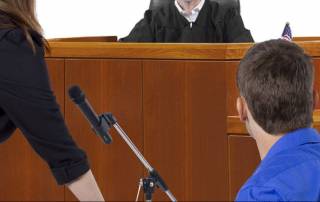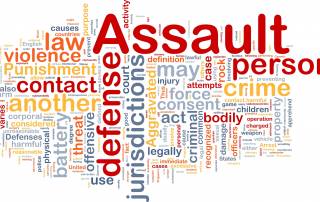What Are the Dangers of a False Accusation?
Being the victim of a false accusation can be frightening, and it can be hard not to think the worst. The proposition can have several adverse effects, including:
- Being found guilty of a crime you didn’t commit
- Having your life interrupted in many ways, especially if you’re sentenced to jail for the crime
- Incurring financial costs associated with the proceedings
- Lost wages as you attend the trial proceedings
- Damage to your reputation
- Possibility of mental health issues as the stress of the charges takes a toll on you
With so much at stake, you can’t afford to be casual if you’ve been falsely accused of a crime you didn’t commit. Contact skilled Long Island criminal justice attorneys to help you fight the charges. They can provide legal counsel to enable you to understand the full scope of what you’re facing to avoid hurting your case.
What Are the Common Types of False Accusations?
False accusations are often based on anger, the need to seek revenge, and a lack of moral character. They are most likely to result in reputational and social damage for the accused. Assault and battery lawyers in Long Island say that in most cases, the accusations tend to be around crimes that are hardest to disprove entirely, such as the following:
Assault: Personal disputes or mistaken perceptions of events can result in false accusations of assault. For example, someone can claim you assaulted them during a heated verbal exchange.
Domestic violence: False accusations can arise in contested divorce or child custody cases. The accuser can make a false report out of spite, revenge, or a solid desire to taint your image to reduce your chances of winning the custody battle.
Child abuse: False accusations of child abuse can happen due to staff inexperience at schools or daycare facilities. They are also common when accusers want to sway legal family proceedings in their favor.
Drug possession: Police officers can sometimes mistake a legal substance for an illegal one. In other cases, people get caught with drugs that are not theirs, hence the basis of the false accusations.
False Accusations Based on Civil Cases
The above examples of false accusations are based on criminal law. Long Island assault and battery lawyers in Long Island say that false accusations also extend into civil and professional settings. In workplace settings, false allegations of discrimination are not uncommon, and they revolve around the following:
- Gender discrimination
- Age discrimination
- Race discrimination
- Nationality discrimination
- Disability discrimination
- Sexual orientation discrimination
- Religious discrimination
You might be tempted to dismiss the allegations of a crime or workplace behavior you didn’t do or don’t recognize. Unfortunately, this is the greatest undoing of your rights and reputation. Consult skilled criminal justice attorneys in Long Island as soon as possible for legal advice on handling the case.
How Can I Defend Myself Against Charges Based on False Accusations?
What you do in the face of false accusations can make or break your case. Skilled lawyers recommend taking the following steps for a favorable outcome:
Remain Calm and Look for Legal Representation
It’s tempting to defend yourself against false accusations, which in most cases can cause you to overact impulsively. It’s essential to maintain calmness despite how emotionally distressing the situation is. Instead, contact criminal defense lawyers in New York and let them help you develop a solid defense strategy to protect your rights.
Don’t Discuss the Issue with Anyone
Avoid discussing the matter with your accuser or making statements to the police without your attorney present. Remember that anything you say can be used against you in court. Comments you make innocently can be misinterpreted or misconstrued, making the charges worse.
You have the right to politely decline to respond to any questions until your attorney is present. They can guide you on what to say and what not to say to avoid incriminating yourself.
Gather Evidence and Preserve Documentation
The evidence you present can prove your innocence. Such includes emails, text messages, video recordings, and photographs. Social media exchanges or other digital communications that may contradict the accuser’s false claims can also help your case.
It would also help to have witnesses who can corroborate the statements. Your Long Island assault attorney can interview them to evaluate the strength of their testimony before incorporating it into your defense strategy.
Build Strong Defenses
Knowledgeable attorneys can be invaluable when building a solid defense strategy to fight false allegations. Possible defenses include:
- Alibi: You can present evidence that proves you were at a different place when the alleged crime happened. Witnesses, receipts from a business trip, or security footage can help.
- Insufficient evidence: There could be an absence of definitive evidence linking you to the alleged crime, resulting in the case being dismissed or an acquittal if the case goes to trial
- Motion to suppress: Your lawyer can file a motion to prevent specific evidence from being introduced during trial. For example, anything you said before being informed of your right to remain silent can be suppressed, strengthening your defense.
An Experienced Criminal Defense Lawyer Helping You Beat False Accusations
False accusations can damage your reputation, rights, and life in general. They can lead to broken relationships, criminal charges, and severe penalties if convicted for crimes you didn’t commit. So, knowing your rights and being well-prepared to handle such a situation is essential. Skilled criminal justice lawyers in Long Island can help you evaluate your options.
Mirsky Law Firm hosts award-winning assault and battery attorneys who can take up your case. With over two decades of specializing in criminal law, we have the skills and knowledge to help you fight the charges. Call us at 516-774-1811 to start a FREE consultation.















